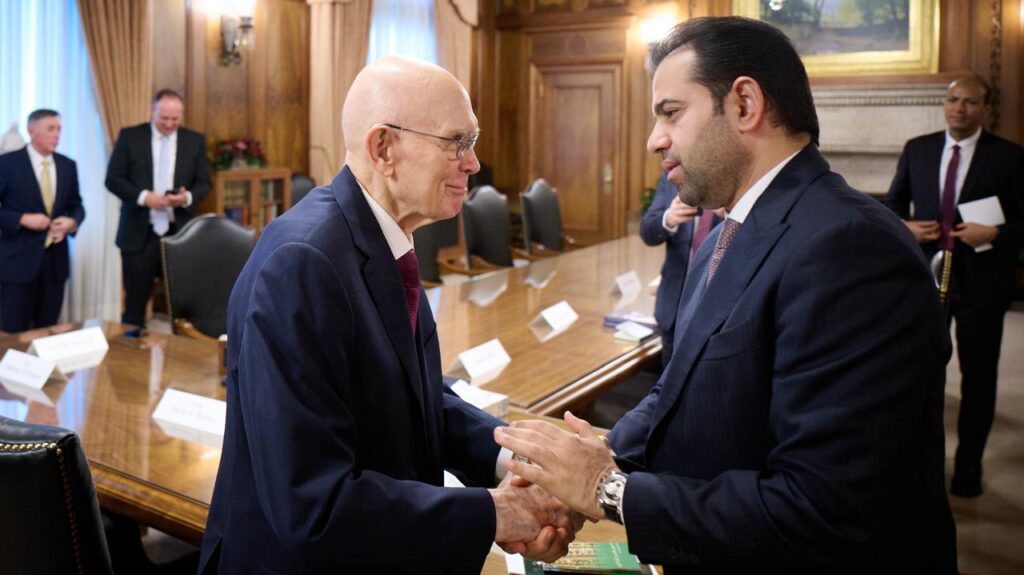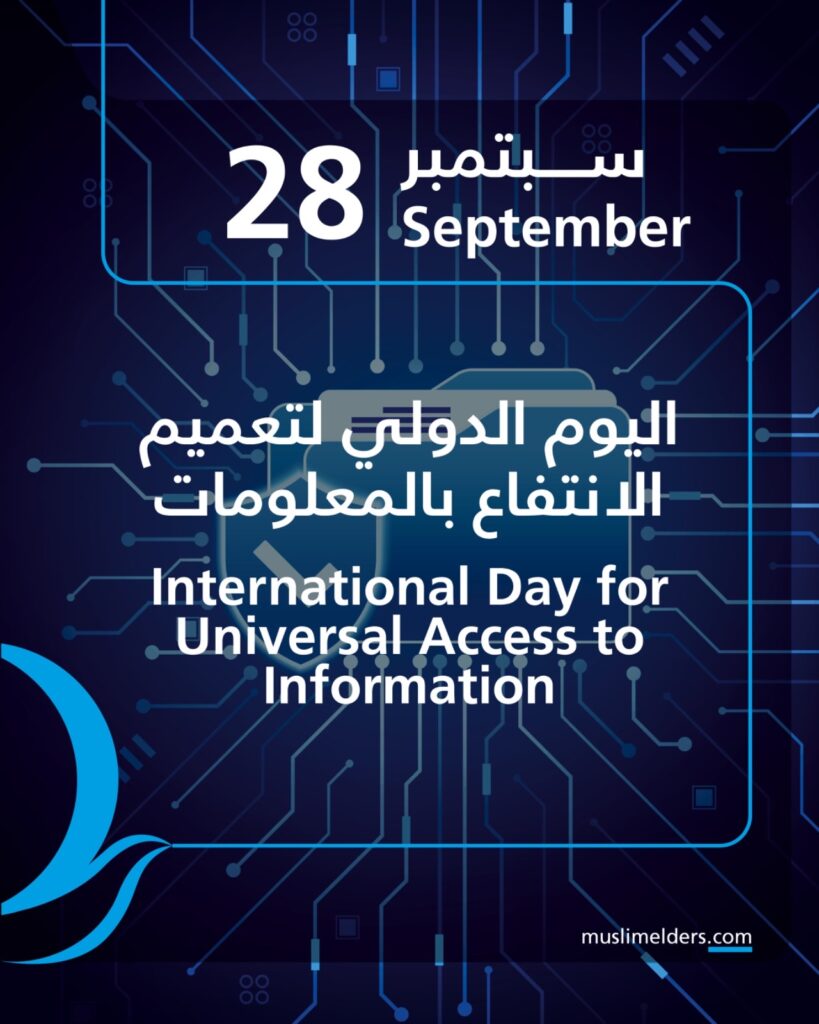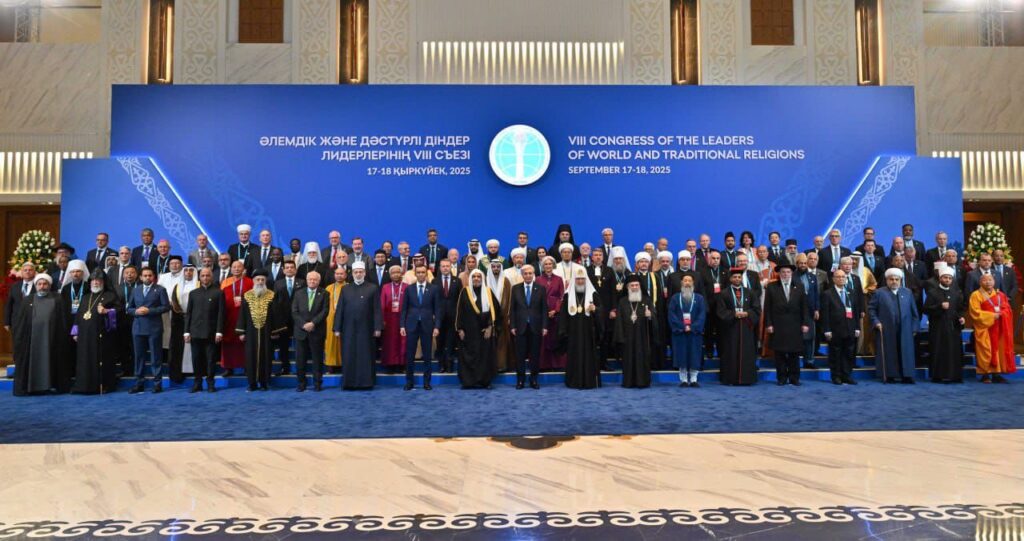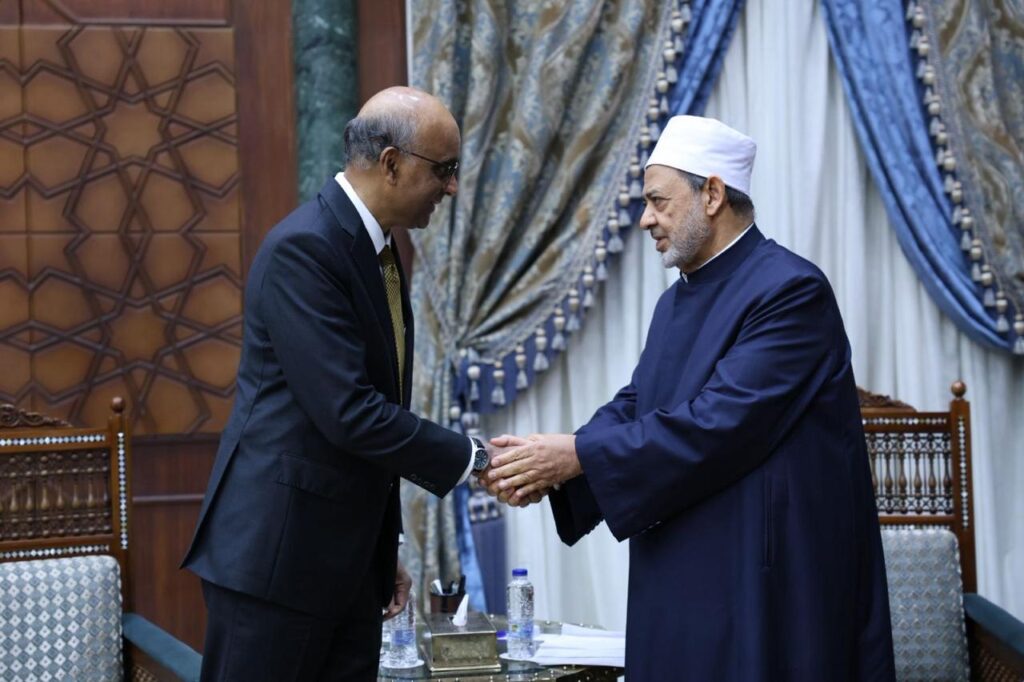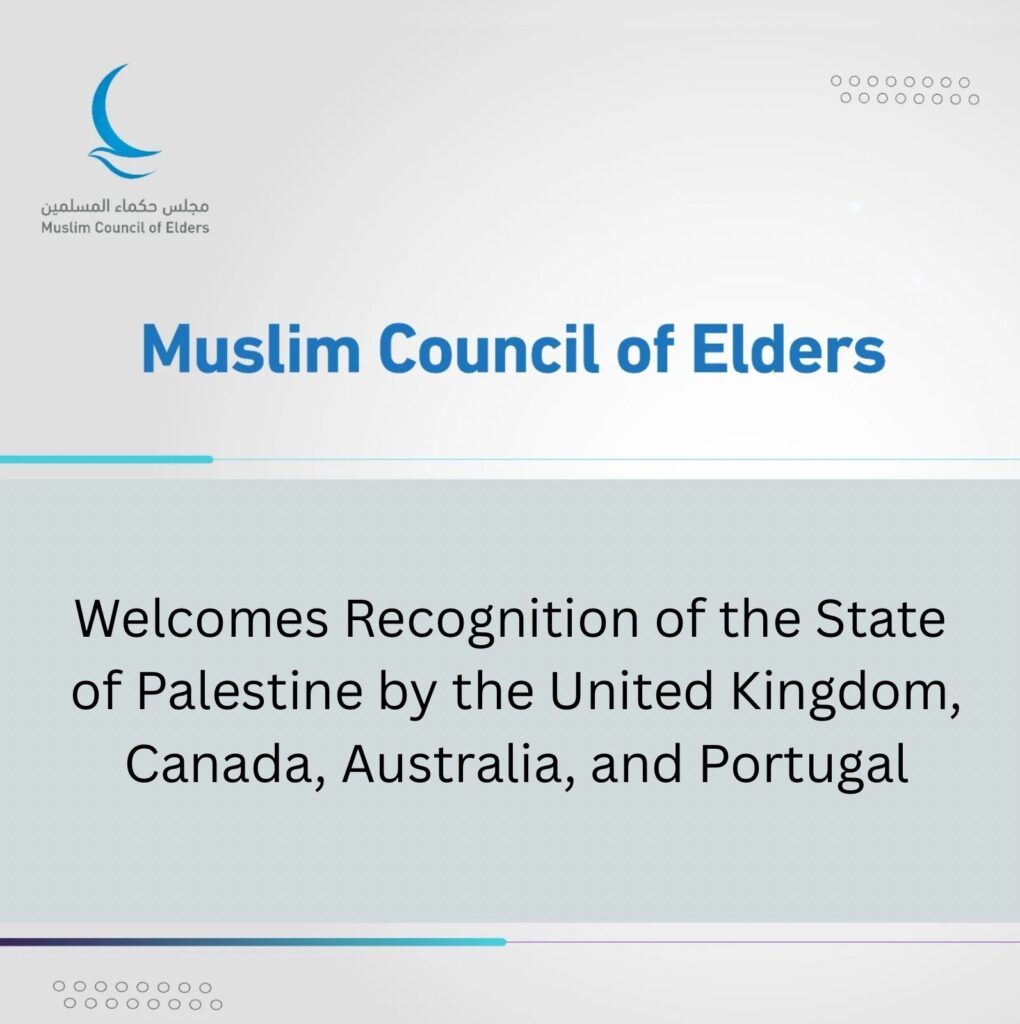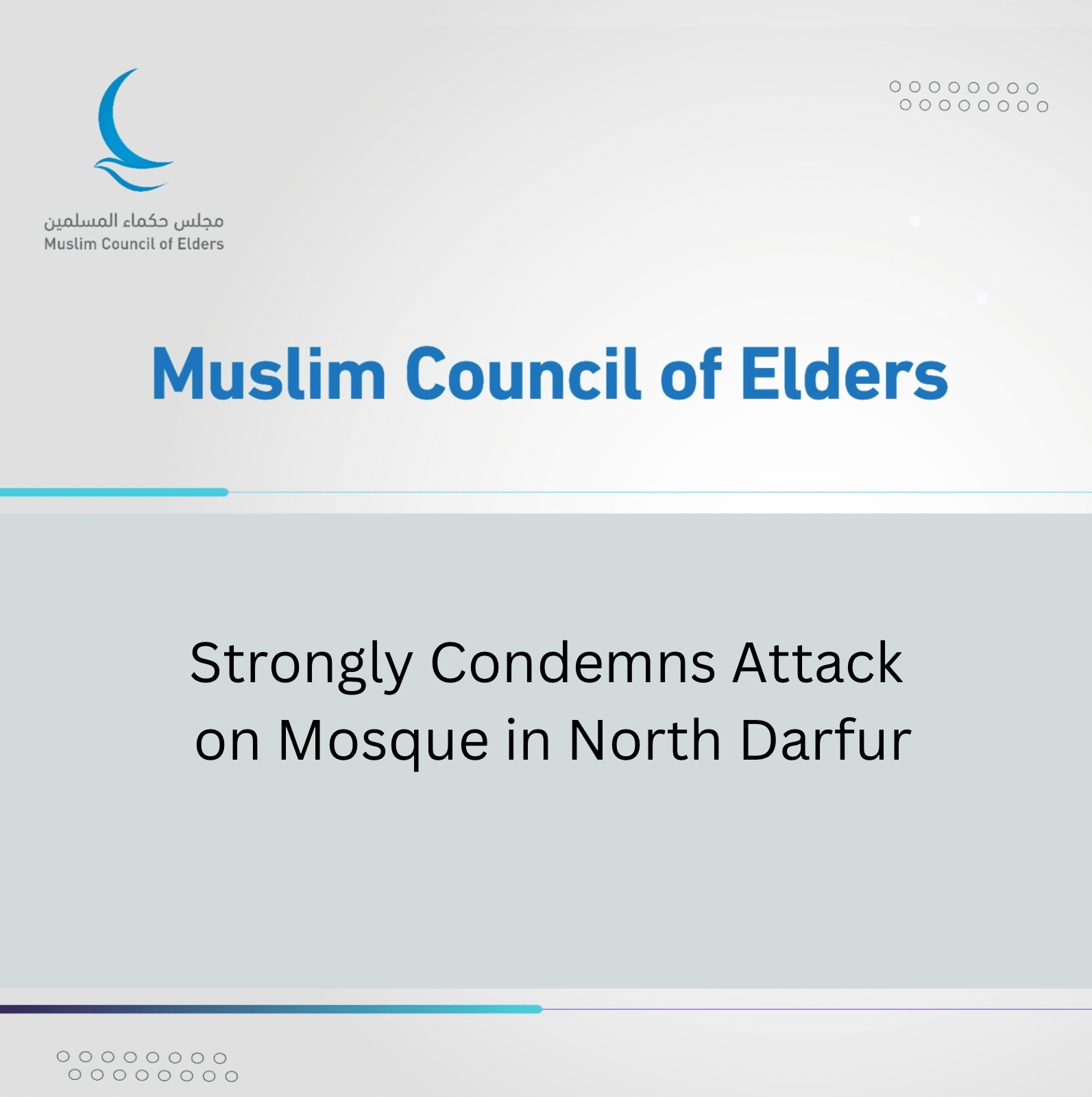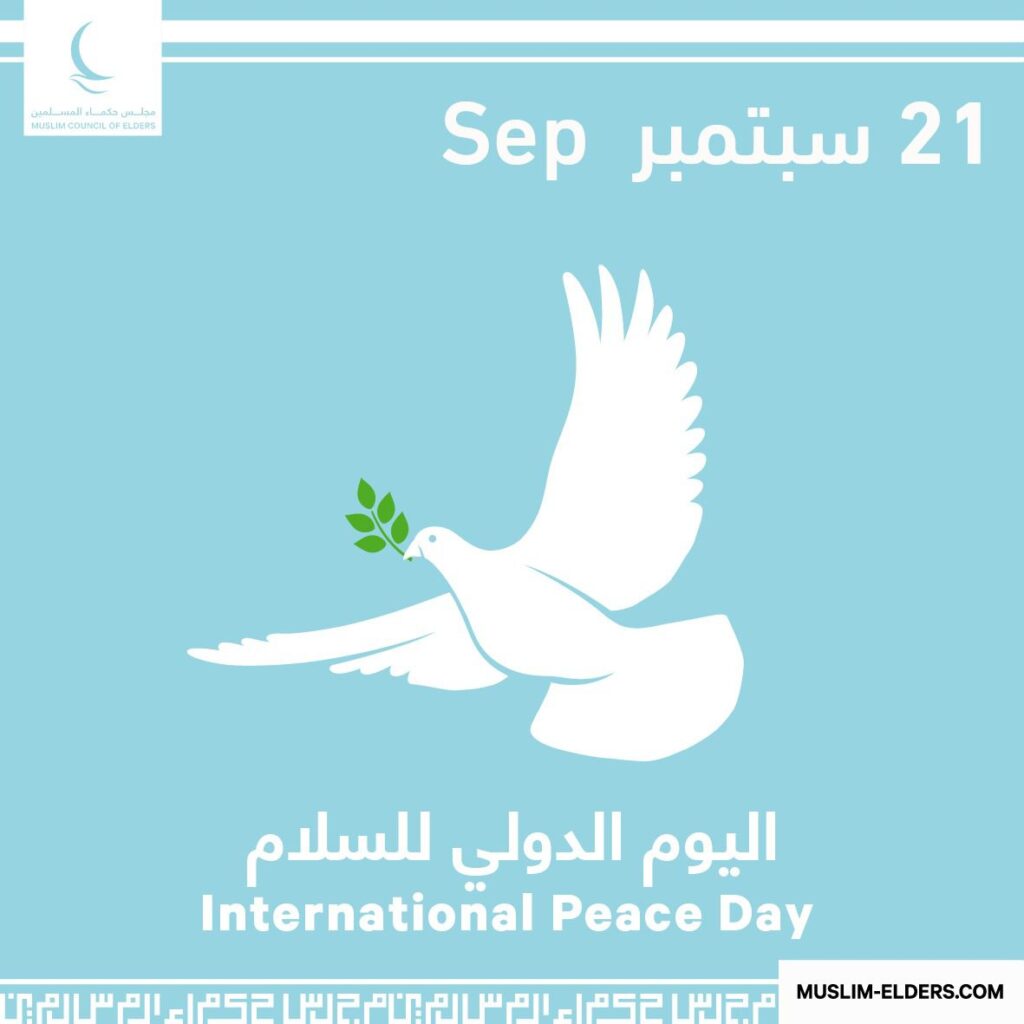A delegation from the Muslim Council of Elders concluded a visit to the state of Utah in the United States of America, having met with religious leaders, academics, and officials to promote the values of human fraternity, strengthen interfaith collaboration, and advocate for ethical innovation in artificial intelligence.
During the visit, His Excellency Judge Mohamed Abdelsalam held meetings with leaders of The Church of Jesus Christ of Latter-day Saints, including President Dallin H. Oaks, Elder David A. Bednar, and Elder Gerrit W. Gong. Discussions focused on shared values, peaceful coexistence, and the ethical implications of technological advancements. Judge Abdelsalam also engaged with Utah’s Muslim community at the Khadeeja Islamic Center Mosque and met with Lieutenant Governor Deidre M. Henderson, underscoring the importance of inclusive dialogue between religious institutions and governmental bodies.
The delegation also visited Brigham Young University (BYU), having met with President Shane Reese to explore opportunities for collaboration in academic research, student exchange programs, youth leadership development, and initiatives related to artificial intelligence. The delegation also participated in a Strategic Planning Collaboration Workshop with representatives from the Muslim Council of Elders and The Church of Jesus Christ of Latter-day Saints, focusing on shared priorities for youth programs, technological projects, and efforts to enhance interfaith dialogue.
Additionally, the delegation toured the Conference Center, several local meetinghouses, and the Bishop’s Central Storehouse, gaining insights into the Church’s worship practices, community life, and humanitarian efforts.
Judge Abdelsalam stated, “I have been deeply inspired by all that I have witnessed in the remarkable state of Utah, which is truly a place of warmth and hospitality.” During his visit to BYU, he added, “Brigham Young University exemplifies the belief that science and religion are not in conflict, and that all truths are complementary and harmonious.”
For his part, Elder David A. Bednar commended the growing partnership between the Muslim Council of Elders and The Church of Jesus Christ of Latter-day Saints, stating, “I am grateful for the deepening relationship between the globally influential Muslim Council of Elders and The Church of Jesus Christ of Latter-day Saints, which has grown significantly in importance and depth.” He further emphasized that the coming period will see further collaboration on numerous inspiring projects and initiatives.


